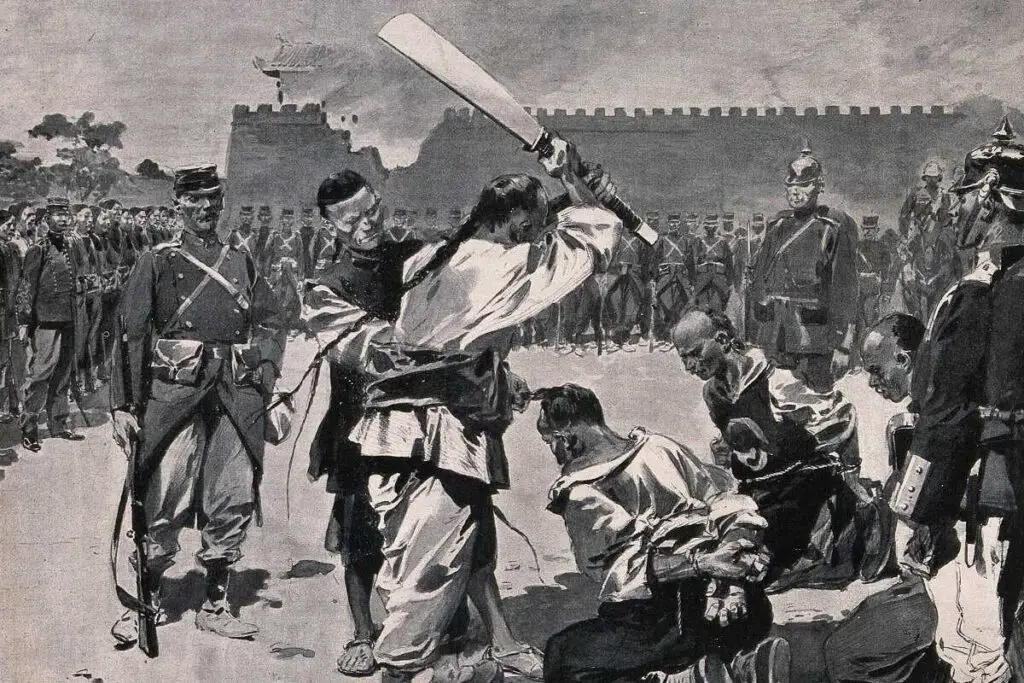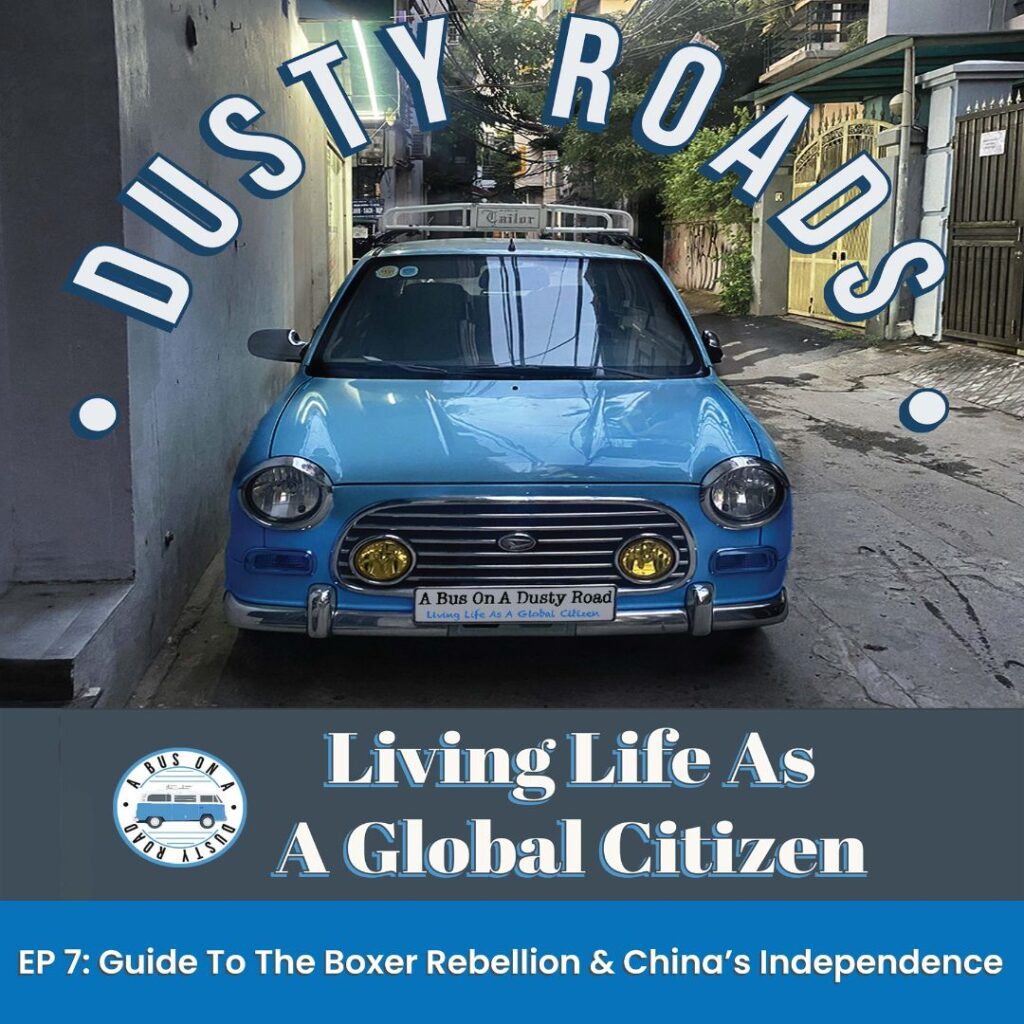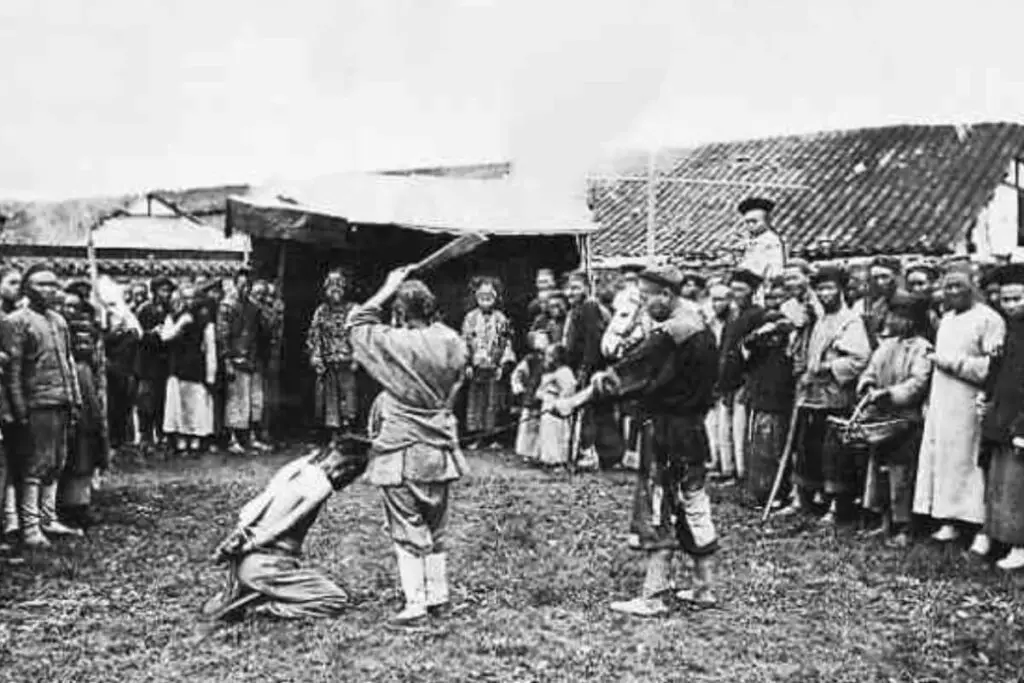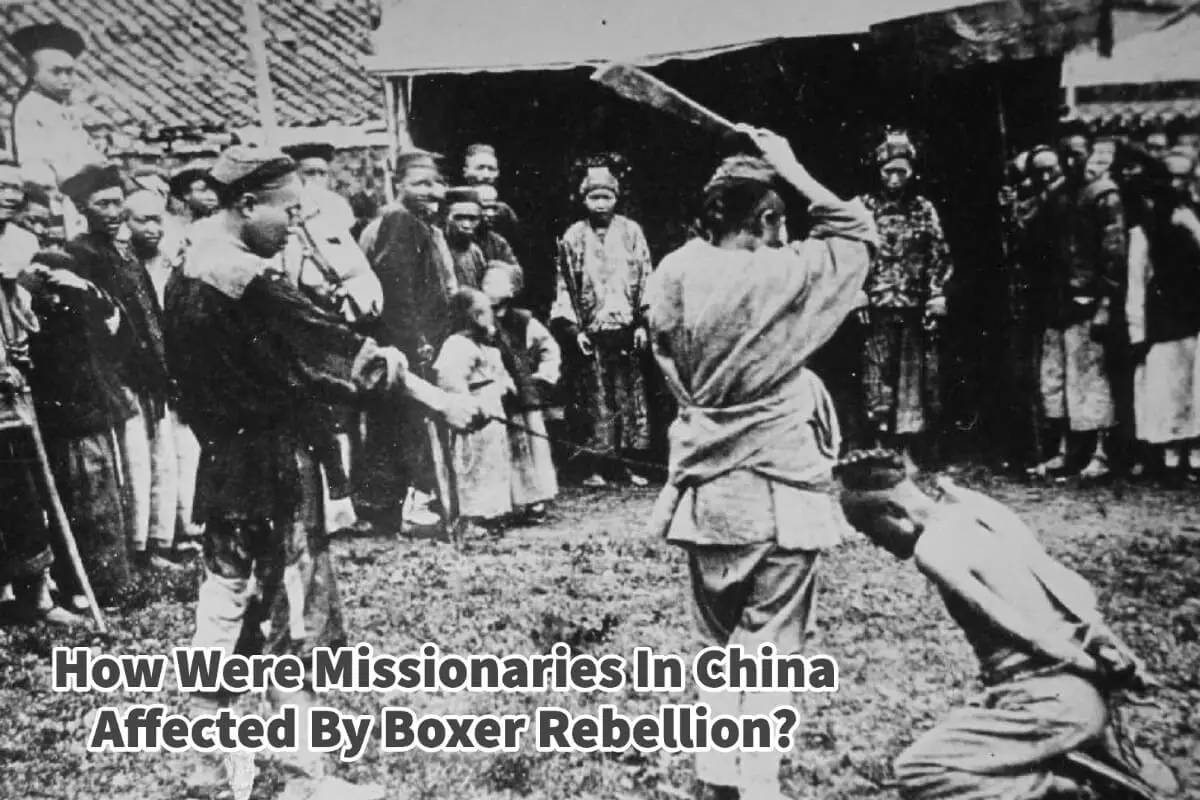When you look at China, it is good to look at its history and how it has shaped China today. One of the historical events that took place in China was called the Boxer Rebellion.
The Boxer Rebellion was a violent anti-imperialist movement that lasted from 1899 to 1901. Many foreign missionaries during this time were faced with great danger, and they were either killed or expelled. The experience these foreign missionaries endured during this time was significant as it was an essential reminder of the risks that could occur when they lived and worked in another country.
Table of Contents
- About The Boxer Rebellion In China And The Foreign Missionaries
- Legacy In China Of The Boxer Rebellion
- What We Can Learn Today From the Boxer Rebellion
- What We Can Learn From The Missionaries In The Boxer Rebellion
- Related Questions
About The Boxer Rebellion In China And The Foreign Missionaries

The Boxer Rebellion in China was a violent anti-imperialist movement that lasted from 1899 until 1901. It was in direct response to many of the foreign influences and interference in Chinese politics, economy, and culture that many Chinese felt was taking place by the foreigners.
A particular target of the boxers was the Christian foreign missionaries. The rebels, known as the boxers, targeted the missionaries as they felt they were the ones who were associated with the foreign powers that were influencing China’s policies.
The foreign missionaries who remained in China during the Boxer Rebellion faced great danger. Many were killed or expelled, and if they were not, they faced undue hardships.
In addition to the physical risks for these foreign missionaries, they also faced significant discrimination and hostility from Chinese nationals due to their connection with foreign countries and powers. They became a kind of enemy within China.
What is impressive is that, despite all of these trials for their safety and life, many of these foreign missionaries continued to work in China and refused to leave China. The missionaries refused to return to their home countries due to the Boxer Rebellion.
Many of the same missionaries did not go home because they wanted to show solidarity with the Chinese people during this time of the Boxer Rebellion. They wanted to show the Chinese that even though these things were happening within China, they would not leave and would remain with the Chinese people.
The Boxer Rebellion became such a massive issue within China for the foreign establishments that a multinational military was formed to help protect the foreign interest within China. Eventually, in 1901 this international military force defeated the boxers and protected the foreigner’s interests within China.

Listen To Our Podcast About Guide To The Boxer Rebellion & China’s Independence below or by clicking here.
Legacy In China Of The Boxer Rebellion

Even today, there are things that we can learn from the Boxer Rebellion. The Boxer Rebellion left a legacy within China and how China reviews the interference of foreign powers in domestic matters. It highlights how important maintaining their sovereignty is for the Chinese people.
Many historians see the Boxer Rebellion as a pivotal moment in Chinese history. It demonstrates the importance of China preserving its cultural heritage and engaging in a dialogue with other countries and cultures on their terms.
For Christians, missionaries, and other foreigners, it shows us the importance of having respectful dialogue and relations with the Chinese people. Also, it shows us how to properly conduct missionary work without infringing upon local Chinese customs and beliefs.
What We Can Learn Today From the Boxer Rebellion
Today, we can learn many things from the boxer, rebellion, and how to bridge cultural divides and promote mutual understanding between two cultures and countries. We can learn from the Boxer Rebellion that respecting another nation’s history and culture is essential.
We learned that being a bridge is more important than trying to force or push someone to believe in what you believe. One of the best ways to ensure successful interactions between cultures is through a bridge of cultural understanding.
What We Can Learn From The Missionaries In The Boxer Rebellion
We also learned from these courageous foreign missionaries the tremendous amount of courage it took for them to build the cultural bridges they needed. We can recognize their bravery and honor their legacy to ensure that, as future generations, we will be better equipped to feel peaceful connections between different cultures and countries.
These foreign missionaries also taught us how to engage meaningfully with other cultures and countries. We can respect their cultural heritage while trying to understand the local customs and working to have a meaningful dialogue.
By working to build our cultural bridges with other nations and countries, we can honor these brave missionaries who risked their lives and, in many cases, gave up their lives in pursuit of a better world for all people. The missionaries who went to China during this time believed in what they were doing and thought they were helping to make China a better place.
At A Bus On A Dusty Road, we talk about everything about culture, travel, life, sailing, and ex-pat living. We are all about “Living Life As A Global Citizen.” We explore social, cultural, and economic issues and travel.
We would love to have you be part of our community. Sign up for our newsletter to keep up-to-date by clicking here. If you have any questions, you can contact me, Anita, by clicking here.
Listen to our Podcast called Dusty Roads. You can find it on all major podcast platforms. Try out listening to one of our podcasts by clicking here.
Subscribe to our A Bus On A Dusty Road YouTube Channel with great videos and information by clicking here.
Related Questions
Where Does The Great Wall Of China End?
The Great Wall ends at what is known as the Jianyu Pass; this Jianyu Pass is the westernmost part of the Great Wall and also was known as the “First and Greatest Pass Under Heaven.” Some called it is the gates at the Jianyu Pass, the Gate of Travelers, and the Gate of Sighs.
You can learn more by reading Where Does The Great Wall Of China End? by clicking here.
Which Sea Lies At One End Of The Great Wall Of China?
The Laolongtou, or the Old Dragonhead, is part of the Shanhai Pass of the Great Wall of China that goes right into the Bohai Sea. Most people consider this to be the start of the Great Wall of China. The Shanghai pass has always been of crucial military significance for China as it helps to protect China’s important capitals, including Beijing.
By clicking here, you can discover Which Sea Lies At One End Of The Great Wall Of China?.
How Much Does The Great Wall Of China Weigh?
If you calculate the approximate number of bricks and the weight of each of those, the Great Wall of China would weigh over 50,000,000 tons. The Great Wall is considered the heaviest continuous structure on the face of the earth. As so many bricks were used to build the wall, if you put all the bricks side by side, it would go around the equator about 36 times.
By clicking here, you can discover How Much Does The Great Wall Of China Weigh?.


